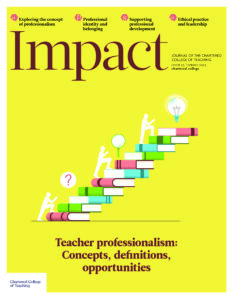EMILY GIUBERTONI, BISHOP CHALLONER CATHOLIC COLLEGE, UK
This reflection articulates one school’s experience of the benefits of sustained engagement with Rosenshine’s principles of instruction (2012) over a decade of practice. There are a number of reasons why this piece of research became our school focus: it was credible; it focused on concrete strategies that teachers could seek to improve; it has clear benefits for students with SEND (Special educational needs and disabilities) (EEF, 2020) and for teaching cross-curricular skills such as literacy (EEF, 2018); it had relevance to the curriculum and exam style in England; and it articulated ‘what works’ in the classroom. This reflection will elaborate on how this engagement has contributed to the professional learning and professionalisation of our teaching body.
Rosenshine on repeat
Teachers today pay attention to the cognitive load of our students (Sweller, 2016). The theory is just as relevant for adult learners
Join us or sign in now to view the rest of this page
You're viewing this site as a guest, which only allows you to view a limited amount of content.
To view this page and get access to all our resources, join the Chartered College of Teaching (it's free for trainee teachers and half price for ECTs) or log in if you're already a member.












I completely agree with the emphasis on sustained professional development over one-off training sessions — it’s only through repetition and real classroom application that strategies like questioning and scaffolding become second nature. The link to improved outcomes for SEND pupils and the alignment with national frameworks adds further weight to this approach. It’s inspiring to see how a single piece of research can become a shared language that drives confidence, consistency and professional growth across a whole staff team.